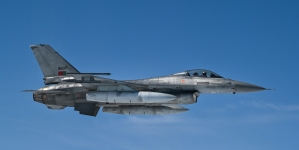-
Many Russians disapprove of Putin method for filling military ranks - December 16, 2023
-
A portion of Mulholland Drive, damaged by mudslides in winter storms, reopens - May 26, 2024
-
‘Maybe You Don’t Want to Win’ - May 26, 2024
-
Donald Trump Putting Law Enforcement in Danger: Attorney - May 25, 2024
-
Avoid the waters of these 5 L.A. County beaches this holiday weekend, public health officials say - May 25, 2024
-
Bawdy Comedy ‘Anora’ Wins Palme d’Or at Cannes Film Festival - May 25, 2024
-
Map Shows Heat Wave Zone Spread Into Five New States - May 25, 2024
-
Azusa police arrest suspected slingshot-wielding vandal - May 25, 2024
-
Donald Trump Hammers Judge Ahead of Jury Instructions - May 25, 2024
-
Sometimes U.S. and U.K. Politics Seem in Lock Step. Not This Year. - May 25, 2024
Many Russians disapprove of Putin method for filling military ranks
A poll released on Friday found that more than half of Russians do not support pardoning prisoners who have previously committed serious crimes if they take part in the war in Ukraine upon release.
Russian Field, a nonpartisan Moscow-based research company, released its findings on Telegram. According to the poll, 55 percent of respondents said they do not support the idea of pardoning participants in the Ukraine war who were convicted of serious crimes prior to joining Russian troops. Thirty-two percent of respondents said they do support pardoning prisoners who fight for Russia.
The independent Russian media outlet Meduza reported that Russian President Vladimir Putin signed decrees in June that pardons prisoners who agree to fight in Ukraine. Putin reportedly said the recidivism rate among prisoners who become soldiers is low. However, there have been multiple media reports of former prisoners accused of committing serious crimes—including murder—after they returned home from the front lines of Ukraine.

Photo by Getty Images
Ivan Rossomakhin, a former inmate who had been convicted of murder three years ago, returned home from the war in Ukraine this summer. Less than 10 days after his military release, he reportedly confessed to stabbing an elderly lady to death.
When Dmitry Peskov—Putin’s press secretary—was asked in November about convicted felons being granted pardons for their war service, he answered: “They atone with blood for crimes on the battlefield, in assault brigades, under bullets, under shells.”
Newsweek reached out to the Kremlin via email on Friday night for comment.
Women were more likely to oppose the idea of pardoning prisoners who serve in the military, with 60 percent stating they are against it, compared to 27 percent in favor of pardons. Forty-eight percent of men oppose the pardon plan, and 39 percent said they support it.
Younger respondents and people with higher incomes and/or higher education levels were more likely to oppose pardoning prisoners, according to Russian Field.
The survey involved 1,600 respondents and was conducted from December 4 to December 12. Russian Field did not provide a margin of error.
The recruitment of inmates from Russian penal colonies first became a practice publicized by the Wagner Group of Russian mercenaries before reports alleged the Russian Ministry of Defense was also taking in convicts.
The United Kingdom’s Ministry of Defense said in May that Russia had ramped up” its recruitment of prison inmates this year due to its military not satisfying personnel staffing goals, but the effort reportedly was not keeping pace with Russia’s casualty rate in Ukraine.
Reports in recent weeks also indicate the Kremlin has been hesitant to turn to another wave of mobilization out of fear that such a move could harm Putin’s campaign for reelection in 2024.
Uncommon Knowledge
Newsweek is committed to challenging conventional wisdom and finding connections in the search for common ground.
Newsweek is committed to challenging conventional wisdom and finding connections in the search for common ground.
Source link































